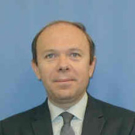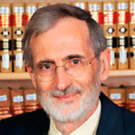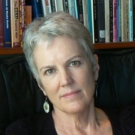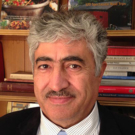Speakers

Gian Luca Burci
Adjunct Professor
Graduate Institute of International and Development Studies of Geneva

John B. Quigley
President's Club Professor Emeritus of Law, Moritz College of Law
The Ohio State University

Virginia Tilley
Professor of Political Science
Southern Illinois University
Moderator
Event Summary
On May 13, Arab Center Washington DC (ACW) hosted a virtual briefing titled “International Law, WHO, and COVID-19: The Politics of Global Pandemic Response.” Human rights Lawyer and ACW Non-resident Fellow Jonathan Kuttab moderated the discussion with former World Health Organization Legal Counsel Gian Luca Burci, Ohio State University Professor Emeritus of Law John B. Quigley, and Southern Illinois University Political Science Professor Virginia Tilley.
Gian Luca Burci discussed the mission and responsibilities of the World Health Organization (WHO). He stated that like other international organizations, it has no specific authority over states, which are left to devise their own standards, resources, and capabilities. He said that WHO has certain regulations that, while good tools, should not be seen as a magic wand to resolve global health issues. During international health crises, the WHO’s mission is to detect, contain, and propose a response; he said the reality, however, is that states control what they do, so responses are not always efficient or sufficient. As a collection of states, WHO deals with many political issues, such as the case today with the response to and the politics around the coronavirus pandemic. While the whole world was watching China from the early stages of the disease, WHO was blamed for supposedly being late to alert the world. Burci said that there is a “grand bargain” between states and WHO: both sides have to be ready to coordinate and cooperate. As for recommendations, he explained that WHO needs to be strengthened with a clearer mandate and better funding. Importantly, it must be seen as a neutral party. States also have a responsibility to alert WHO and the world about crises and to be ready to increase coordination with others in the international system. What is clear, according to Burci, is that the current crisis “has shown that big government is essential.”
John B. Quigley looked into how the international system that created the World Health Organization operates and where the organization fits within it. Stating that WHO is beholden to the way the international system works, he noted that it came into being as an heir to earlier efforts, such as the International Health Office that was established in Paris in 1908 which, in turn, was continued through the agencies of the League of Nations that was created after the First World War. WHO was formed as a specialized international agency by the United Nations in 1946 and its importance and centrality derived from the UN’s international standing. Other global entities were similarly created, he said, such as the International Civil Aviation Organization and the Organization for the Prohibition of Chemical Weapons. Quigley pointed out that the United States has always had problems with international covenants. For example, the US Congress refused to ratify the International Covenant on Economic, Social and Cultural Rights that former President Jimmy Carter signed. The United States also rejected recognizing Palestine as a state at the United Nations and threatened to cut UN funding. Still, Quigley asserted, despite the trouble with the current international system, being part of it and working within its institutions remain important.
Bringing in a political science perspective, Virginia Tilley said that there is a distinctive problem related to the Trump Administration’s way of dealing with international efforts to confront diverse crises. She stated that Trump himself is a big culprit in this situation; his actions and statements are “so at odds with international organizations.” As examples, she used the administration’s insistence on calling the coronavirus pandemic the “Wuhan virus” at the latest G7 meeting, thus scuttling the gathering, and its insistence that the G20 meeting not mention the World Health Organization, spoiling that gathering, too. What bolsters the administration’s approach is a measure of domestic aversion to internationalism, in general, and to international cooperation specifically—sentiments shared by others in the world as well. Tilley suggested that there is a need for change in the current liberal international order and in the global capitalist system, which give individual states the ability to be hegemons at the expense of vast majorities of poor people. She also suggested that this crisis in the international system allows fascist ideologies to thrive, adding that the United States is not unique in this regard.

